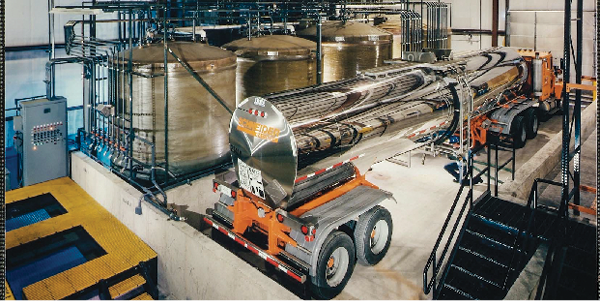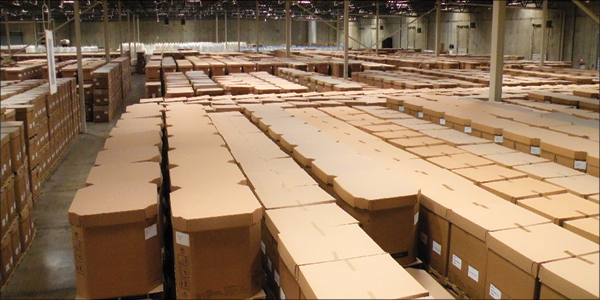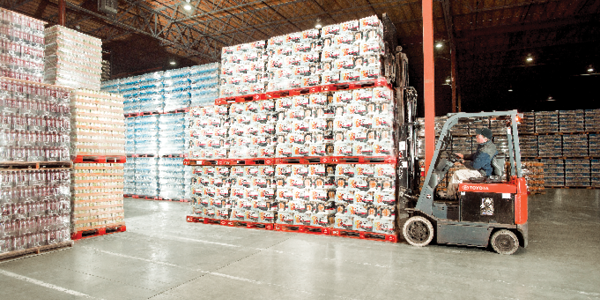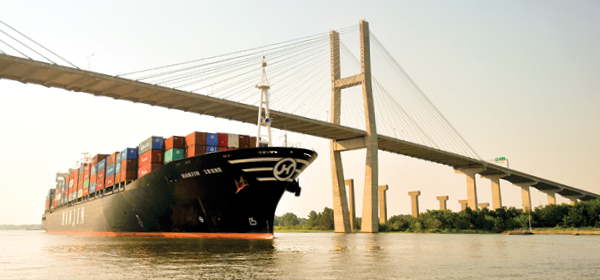Articles
Sponsored

Complex Products, Complex Logistics Needs
By their very nature, chemicals make for complicated logistics. Transporting, storing, and distributing flammable, corrosive, highly reactive and carcinogenic materials is not an easy task. And when things go wrong, it’s not just a late or missing shipment at hand—there are economic, environmental, and emotional consequences. The deadly fertilizer plant explosion that occurred in April […]
Read More
No Shortage of Challenges
Lack of capacity is one of the biggest challenges chemical shippers are currently grappling with. The culprits? The ongoing truck driver shortage, and changes to the Hours of Service rules, which take effect in July 2013 and will limit drivers’ time on the roads. While capacity issues are impacting all shippers, chemical companies feel the […]
Read More
Outsourcing for Optimum Supply Chain Effectiveness
MORE TO THE STORY: An Industry in Flux The chemical industry’s complex logistics needs, safety and security concerns, and regulatory issues make outsourced logistics, transportation, distribution, and warehouse services an important part of its supply chain. Third-party logistics (3PL) providers working with the chemical industry offer a wide range of services in different levels of […]
Read More
Supply Chain Technology Taps into Efficiencies
Access to technology is an important driver for logistics and transportation outsourcing in the chemical market. The industry has lagged behind some other verticals in adopting logistics and supply chain technologies, partly because of the business’ unique nature. Many small, specialized transportation providers serving the industry haven’t had the resources to offer electronic transaction services, […]
Read More
Site Selection: The Rise of Intermodal
Intermodal plays an essential role in today’s site selection process. Superior rail intermodal sites and services put your company on the right track.
Read More
Pallet Strategies: Stacking the Odds in Your Favor
When it comes to choosing the best pallet for your shipments, the smart money is on a strategic approach that anticipates future needs.
Read More
Why Mid-market Shippers Should Leverage TMS
Q: Mid-sized firms are often stretched for resources. How can they better manage transportation? A: Many mid-market shippers manage transportation "by avoidance." They know they could be doing it better, but don’t have the time or resources to focus on it. There’s always a fire somewhere, and if product is getting out the door and […]
Read More
Shoring up Sourcing Strategies
Q: What factors are driving reshoring/near-sourcing consideration? A: A balance in labor rates between China and North America is warranting a second look at sourcing and manufacturing closer to demand. Mexico may be a first choice because of its labor cost differential, but the United States, with the promise of cheaper energy, presents another opportunity. […]
Read More
Connect and Collaborate to Better Manage Freight Spend
Q: What are the current challenges of managing freight spend? A: In today’s slow-growth economic environment, organizations are pressured to reduce costs and manage inventory well. The result is demand for frequent deliveries, which amplifies the need to control shipment costs, according to research by the Aberdeen Group. In addition, organizations operate increasingly complex supply […]
Read More
Truckers and Shippers Prepare to Meet Over-the-Road Challenges
Q: What challenges do domestic transportation service providers face today as a critical part of the value chain for manufacturers and retailers? A: One of the most competitive segments of the trucking market, truckload (TL) companies also represent the core business of most asset-based, but diversified, transportation companies. Their most common concern, according to a […]
Read More
Transportation Management: A Layered Approach
Q: Why bother managing the inbound aspect of the supply chain? A: Historically, organizations built their transportation management strategies and tactics around the outbound aspect of their supply chain. The gravity of customer revenue pulls the attention in that direction. This inattention in the supplier direction often leaves the inbound supply chain exposed to margin-draining […]
Read More
The Strategic Approach to Optimizing Inbound Shipments
Q: Knowing there are significant benefits to be captured using a transportation management system (TMS) and optimizer for inbound shipping, what are some of the typical roadblocks that shippers encounter when implementing an inbound optimization strategy? A: A very common obstacle to optimizing inbound shipping is arriving at the proper rate structure. The whole point […]
Read More

Quantifying Transportation Performance With Technology Tools
Q: What strategic direction have shippers and carriers developed to increase partnership value? A: Shippers and carriers have become more collaborative in their approach to pricing. For example, in the less-than-truckload market, shippers have begun to use carriers’ rate base when running their bids. This creates value for shippers by using each carrier where it […]
Read More
Managing Shipment Data to Meet Customs Requirements
Q: How are Customs agencies changing their approach to reviewing transactional data, and how will this affect shipments and traders? A: Collaborative Border Management (CBM) between Customs agencies will allow countries to exchange trader and shipment data in a live environment so non-compliance and perceived threats can be readily identified, measured, and monitored. Customs is […]
Read More
Alaska: Logistics at the Global Crossroads
Shipments moving to, from, and through Alaska connect the state’s businesses and residents to the rest of the world.
Read More
Building an Effective Import Compliance Program
Q: How do shippers create an importing program? A: Meeting import control obligations need not be a painful experience. Proactive import compliance planning and governance will minimize the risks and negative consequences of non-compliance. First, understand current import laws and regulations. Familiarize yourself with government policies and procedures prior to actually importing your goods. You […]
Read More
Best Practices to Manage International Freight Spend
Many companies have switched operations to low cost suppliers—only to find that higher than expected transportation expenses outweighed the benefits. In fact, the logistics costs associated with operating a global supply chain can be 6 to 11 percent of revenue, roughly three to five times more than a domestic supply network. A recent AberdeenGroup report, […]
Read More
How Freight Classification Changes Impact Shippers
Q: What are some of the recent and proposed changes to the National Motor Freight Classification (NMFC) used to determine the class for rating less-than-truckload (LTL) shipments? A: The most notable change—effective Dec. 1, 2012—was in classifying computer equipment. Under the new classification, this product type moved to a density-based rating with the lowest possible […]
Read More
Georgia: Logistics Front and Center
A prime geographic location positions businesses in Georgia to take the lead.
Read More